France terror attack: More arrests as Catholics pray in shadow of Nice attack
French police have questioned three more males over a terror attack in Nice which left three dead, as locals nervously celebrated the All Saints holiday.
World
Don't miss out on the headlines from World. Followed categories will be added to My News.
A man arrested over a terror attack on a church in Nice is believed to have migrated from Tunisia with the suspected Islamist knifeman, sources close to the investigation say.
Three people were killed in the knife rampage on Thursday in the Notre-Dame Basilica in the French city, that prosecutors say was carried out by a young Tunisian recently arrived in Europe.
In Nice, three men were released from police custody on Sunday after authorities determined they were not linked to the suspected attacker Brahim Issaoui, sources close to the investigation said.
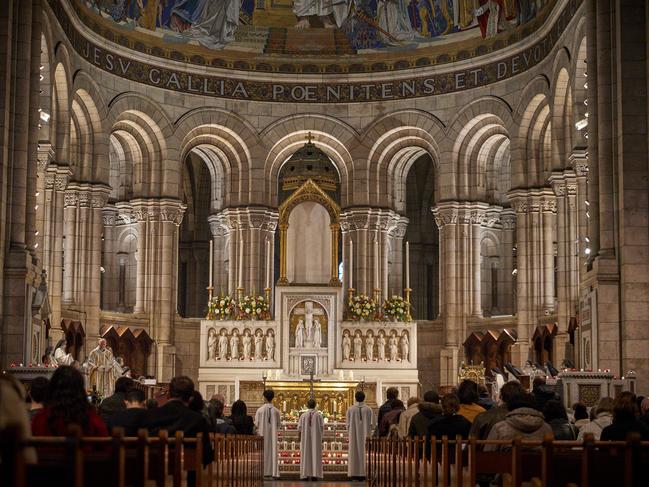
Three men remain in custody, including a 29-year-old Tunisian suspected of travelling with Issaoui from their homeland together.
The tensions did not prevent Catholics going to church to celebrate the All Saints holiday in Nice, authorities allowing an exemption during the coronavirus lockdown.
“I was apprehensive, I was scared of coming,” said Claudia, 49, as she went to church, reassured by the presence of heavily armed soldiers.
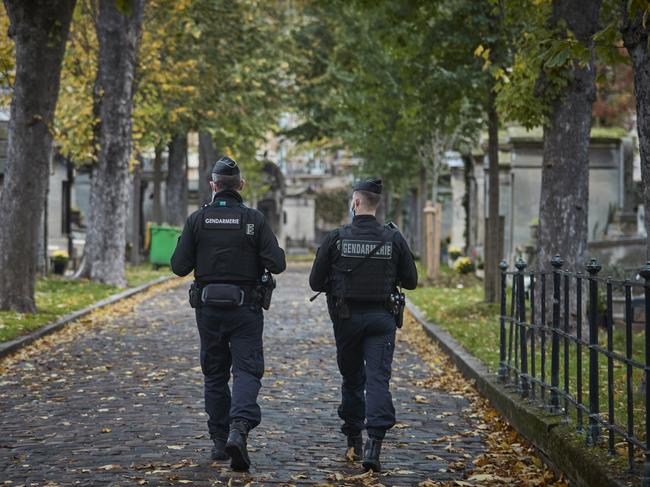
“We need to show that we are not scared and we are here,” she said, following several other worshippers into the church, where an early evening mass was held to honour the three victims.
The bishop of Nice, Andre Marceau, said the “abomination of this terrorist act has tainted” the space, lashing at “a perverse, toxic and deadly ideology”.
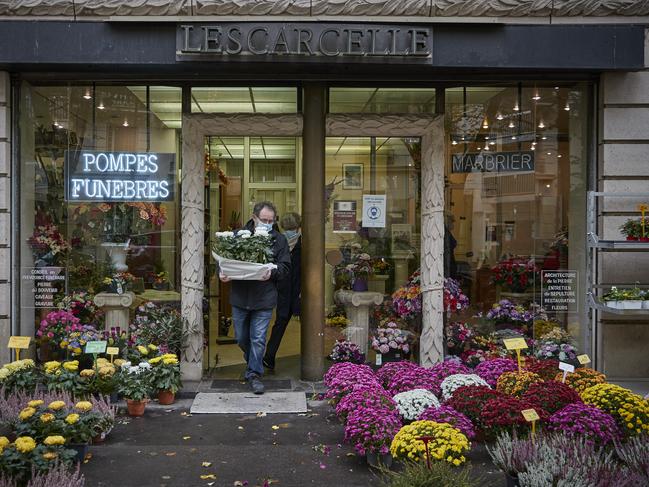
In a bid to create mutual understanding, a group of Muslim imams and their families attended Sunday mass at the Saint-Esprit de Bagatelle church in the city of Toulouse.
“These people, without mind or reason, want to make another (Koran) interpretation,” Lahouary Siali from the Al-Rahma mosque said, referring to violent extremists.
“We strongly reject it.”
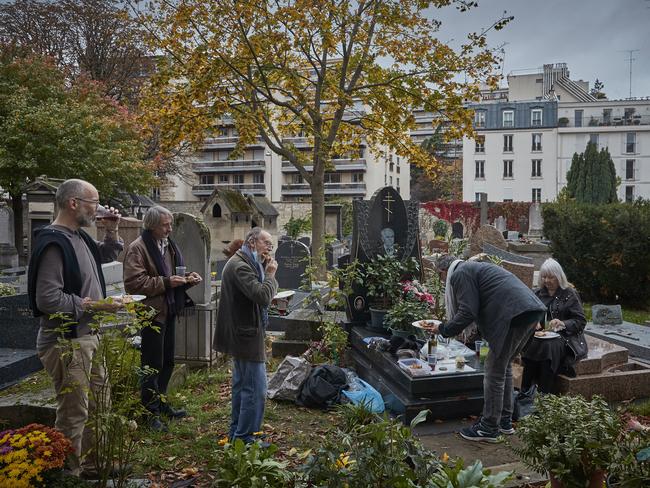
PRIEST SHOT AT LYON CHURCH
A Greek Orthodox priest was seriously injured after a gunman opened fire while the clergyman was closing up his church in the French city of Lyon.
Authorities locked down part of the city as police hunted the assailant, who struck around 4pm on Saturday (local time).
The attacker was alone and fired from a hunting rifle, a police official told French media.
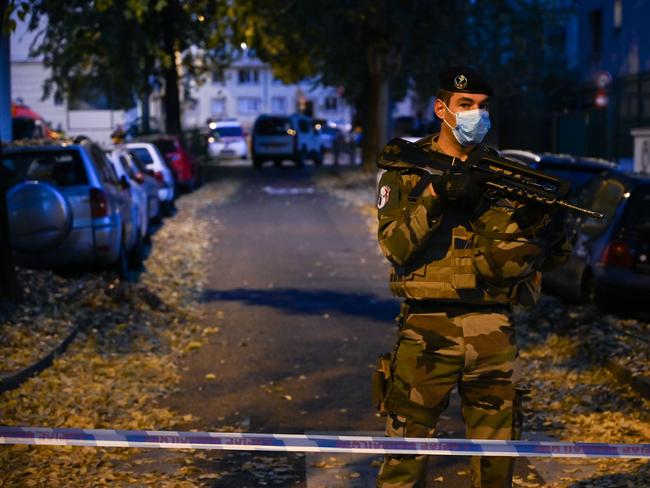
The Lyon public prosecutor’s office said it had opened an investigation for attempted murder, and was liaising with the national anti-terrorism prosecutor.
“No theory is favoured, no theory is ruled out,” Lyon Mayor Gregory Doucet told reporters at the scene.
“We don’t know at this stage the motive for this attack.”
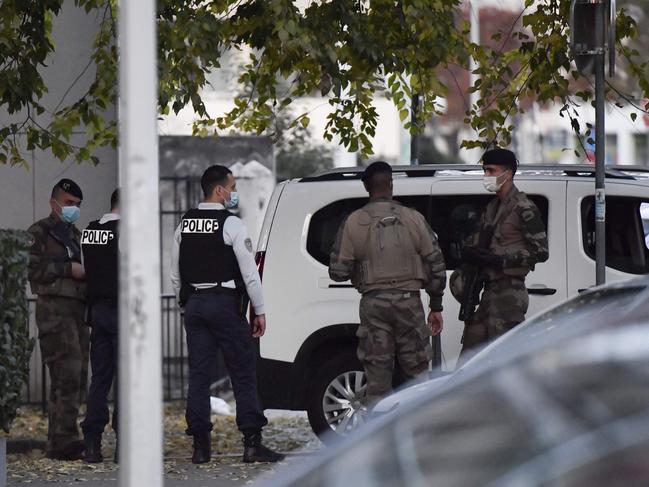
It comes as French President Emmanuel Macron said that he could understand if Muslims were shocked by cartoons of the prophet Mohammed, as French authorities on Saturday sought to ascertain if a young Tunisian suspected of killing three people in a knife rampage inside a church had outside help.
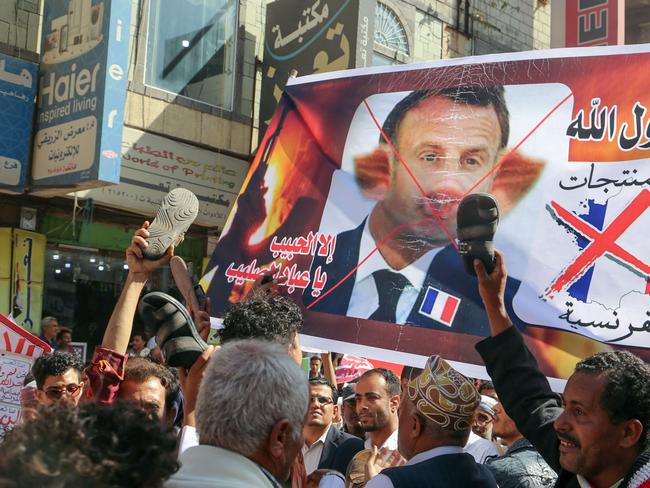
France is still reeling from the latest attack in Nice, which Mr Macron has already described as “Islamist” terror.
The nation is on edge after the republication in early September of cartoons of the prophet Mohammed by the Charlie Hebdo weekly, which was followed by an attack outside its former offices, the beheading of a teacher and now the attack in Nice.
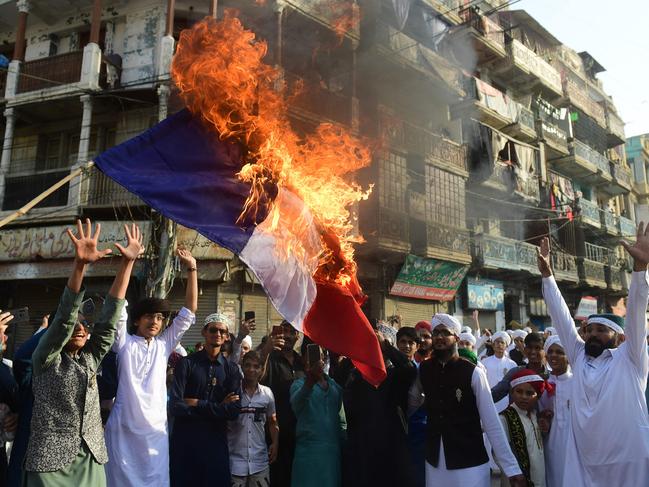
Mr Macron sparked protests in the Muslim world after the murder earlier this month of teacher Samuel Paty, who had shown his class a cartoon of Mohammed, by saying France would never renounce its right to caricature.
But in an apparent bid to reach out to Muslims, Mr Macron gave a long interview setting out his vision to Qatar-based TV channel Al-Jazeera, seeking to strike a softer tone.
“I can understand that people could be shocked by the caricatures but I will never accept that violence can be justified,” he said.
“I consider it our duty to protect our freedoms and our rights,” he added.
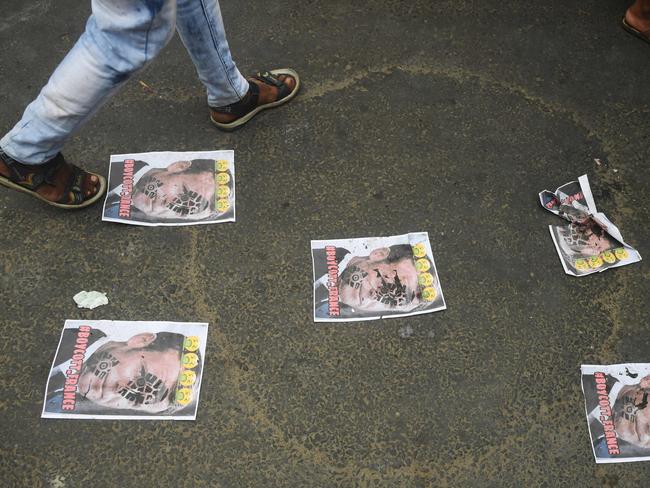
THIRD MAN DETAINED IN ATTACK
The French government has vowed to send thousands more police onto the streets to ensure security as investigators sought to uncover what motivated Brahim Aouissaoui to kill three people.
He slit the throats of Nadine Devillers, 60, and Vincent Loques, 54, who worked at the church.
He also stabbed Brazilian national Simone Barreto Silva, 44, who managed to flee but later died of her wounds.
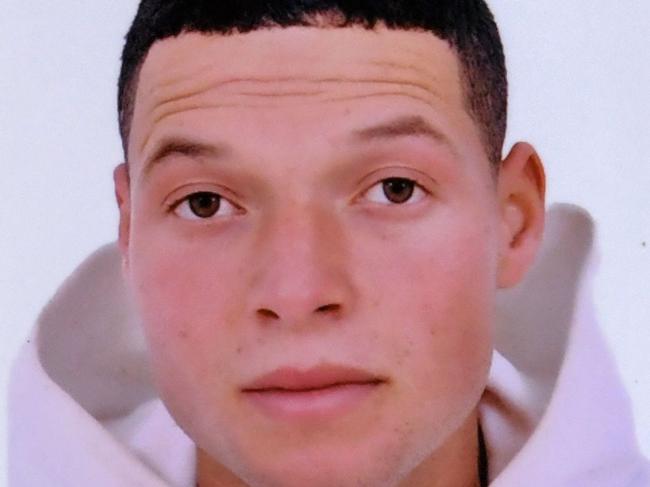
The bloodshed inside Nice’s Notre-Dame basilica on Thursday morning added new tension in a country already on the highest alert after a string of attacks blamed on suspected Islamists in recent weeks.
The 21-year-old arrived in France this month via Italy before carrying out what the government described as an act of “Islamist” terror inside the church.
The suspected knifeman, was shot multiple times by police in the aftermath of the attack.
He has been in serious condition and was not conscious as of Friday evening.
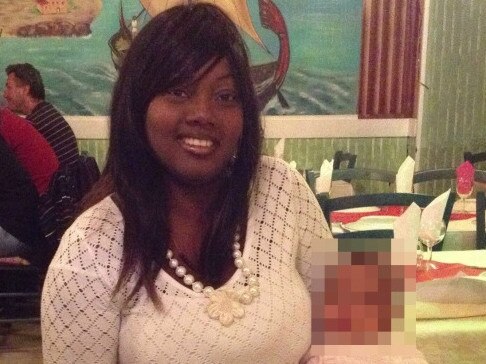
A source close to the investigation, who asked not to be named, said the authorities believe he arrived in Nice no more than 48 hours before the attack.
Another source said it was so far unclear what had prompted the young man to carry out the killings.
“He wasn’t on any of our security watchlists, either French or European,” Interior Minister Gerald Darmanin said, reiterating that France was “at war with Islamist extremism … an enemy that is both internal and external”.
He added after a top-level security meeting that 3500 reserves in France’s gendarme force would be called up to give local authorities a total of 7000 members of the security forces at their disposal to ensure security.
Some 4000 additional French troops will also be mobilised from next week to raise the numbers taking part in the ongoing Sentinelle security operation to 7000, the army confirmed.
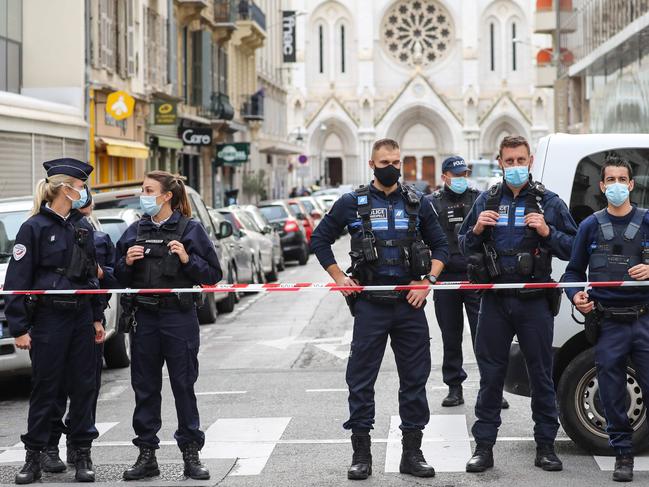
President Emmanuel Macron, who held a crisis meeting with top ministers on Friday, has already stepped up military patrols at churches and other sites ahead of All Saints’ Day on Sunday.
Foreign Minister Jean-Yves Le Drian warned after the meeting that French citizens face a security risk “wherever they are” in the wake of the attack, saying alerts had been sent to all French nationals abroad.
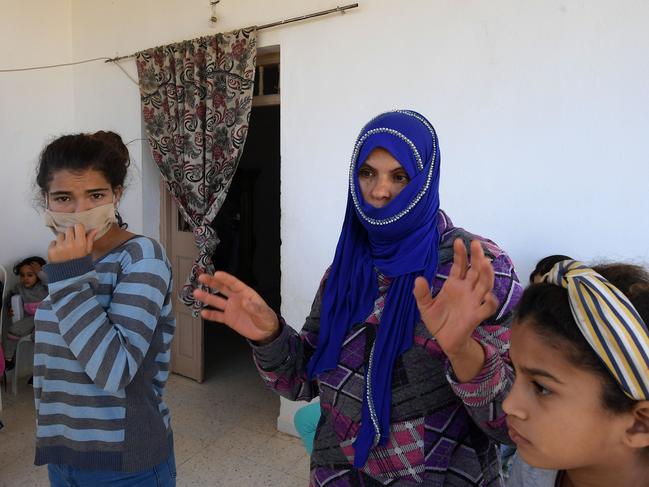
‘DIDN’T MIX WITH OTHERS’
In Issaoui’s hometown of Sfax in central Tunisia, his family told AFP they struggled to believe he had carried out the attack.
“It’s not normal,” said his brother Yassine.
But relatives said he had turned to religion and isolated himself in the past two years.
“He prayed … (and) went from home to work and back, not mixing with others or leaving the house,” said his mother, crying as she clutched a passport photo of the young man in a white hoodie.
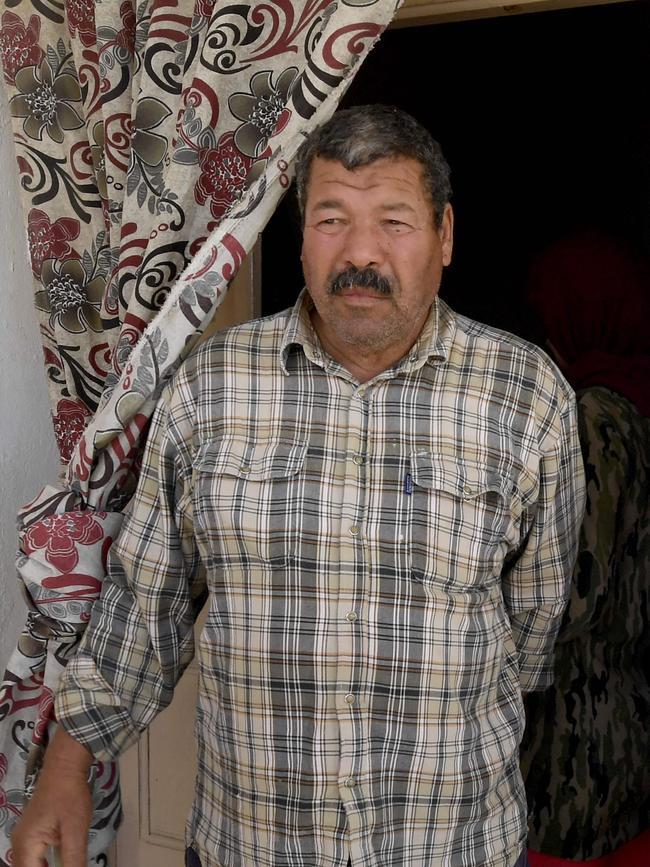
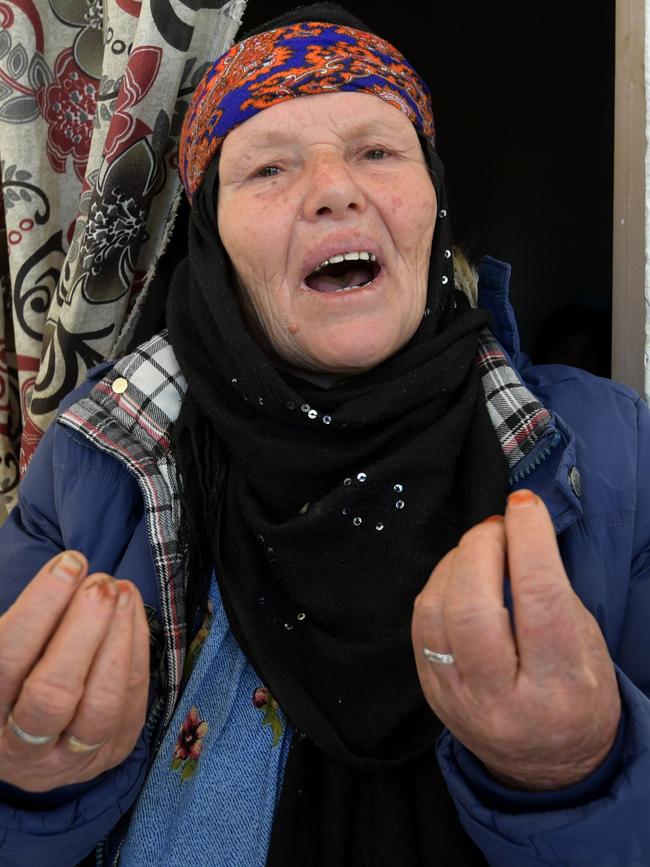
The attacker in Nice had a copy of the Koran, two phones and three knives when he entered the church in the centre of the Mediterranean city at around 8.30am local time, according to France’s anti-terror prosecutor Jean-Francois Ricard.
Officials said Issaoui shouted “Allahu Akbar” (God is greatest) as he was taken to the hospital after being shot and wounded by police.
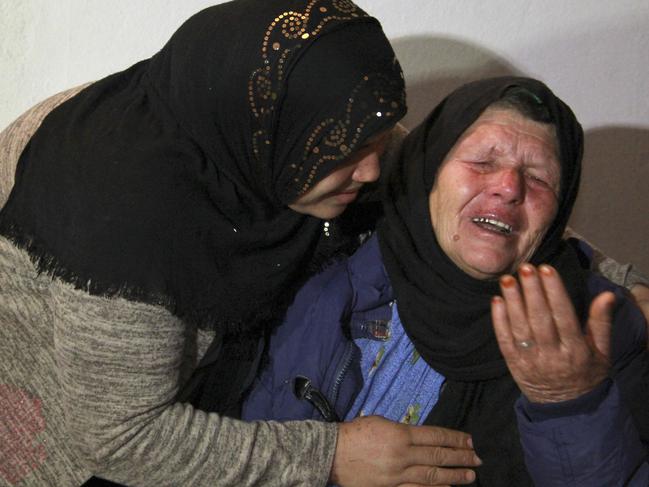
The attack came as fears of Islamist violence were already running high, just two weeks after a French teacher was beheaded in a street near his school in a Paris suburb.
The teacher, Samuel Paty, had infuriated some parents by showing cartoons mocking the Prophet Mohammed to students as part of a lesson on free speech, with some denouncing him in a social media campaign.
GLOBAL PROTESTS
More than 250 people have been killed in jihadist attacks on French soil since January 2015, when gunmen massacred 12 people at the offices of Charlie Hebdo over its publishing of the Mohammed cartoons.
To mark the start of the trial for 14 suspected accomplices of the attackers, Charlie Hebdo republished the controversial cartoons last month.
Just days later, an 18-year-old man from Pakistan seriously injured two people with a meat cleaver outside Charlie Hebdo’s former offices in Paris.
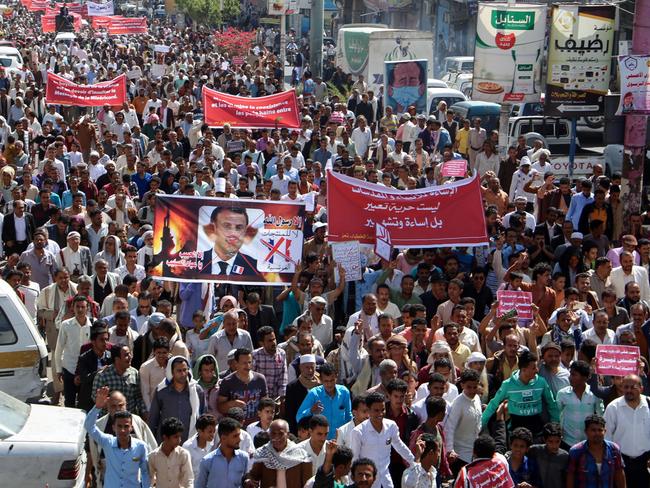
Nice’s right-wing mayor Christian Estrosi told Europe 1 radio that he wanted to see a change in the constitution in order to “wage war” against what he termed “Islamo-fascism”.
Mr Macron’s stance against Islamist extremist violence, and his defence of the Mohammed cartoons, has outraged many Muslims around the world who accuse him of unfairly targeting an entire religion.
Protests erupted in Afghanistan, Pakistan, Bangladesh, Mali, Yemen, Mauritania and Lebanon, the latest in a string of mass rallies denouncing France.
KILLER ‘FREED FROM DETENTION’
Aouissaoui, had followed the “classic migratory route” from North Africa to Europe, according to French media reports before he was “suspected of having contracted COVID-19 and was placed in solitary confinement on a ship”.
He was pictured by authorities in a mug shot after his arrival on French soil before he murdered three people in the cowardly attack earlier this week.
As per official procedure, the 21-year-old should then have been jailed before being deported after arriving in the port of Bari with no official papers and suffering health problems.
Instead, The Sun reports, French authorities failed to confirm the murderer’s identity and he was freed.
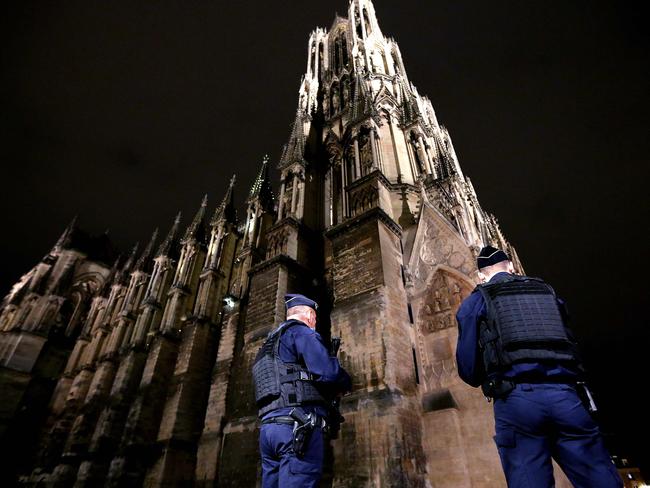
He made his way to Paris and then onto Nice by train, in a way that did not alert officials.
An investigations has been launched to “determine the causes of this dysfunction.”
Meanwhile Aouissaoui’s family have spoken of their shock as he was revealed as the attacker who killed three people at Notre-Dame de Reims cathedral in Reims, Nice.
The family said the killer even sent them a photo of the cathedral before the despicable act.
“He phoned me when he arrived in France He told me he wanted to spend the night in front of the cathedral,” Brahim’s brother Yasin told Arab media outlet Al Arabiya.
“What we saw in the images is him, our son.”
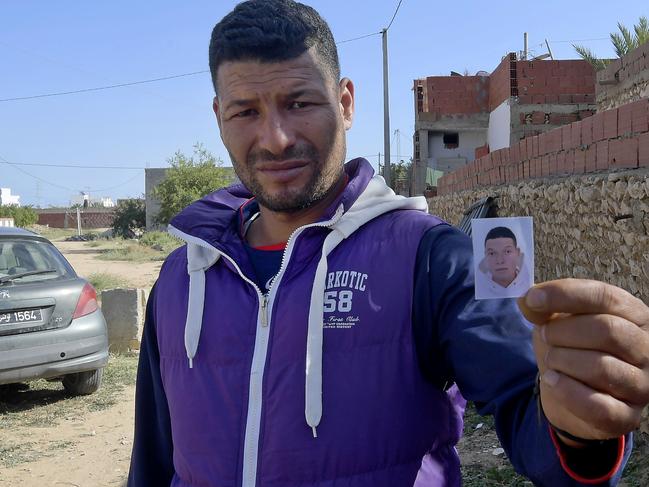
WHY FRANCE HAS BECOME A TERROR HOTSPOT
Returned Islamic State fighters, a splintered society where Muslims are segregated in “ghettos” and a determination to remain a secular country have made France a terror magnet.
France has banned headscarves as it pursues laïcité – or secularism – which was first ingrained in the culture to restrict the power of the Catholic Church.
Now it has become a battleground for Islamic extremism.
Tensions were already brewing before Paris teacher Samuel Paty was decapitated on October 16 after he referenced cartoons about the Prophet Mohammad in a discussion about freedom of speech.
French president Emmanuel Macron identified the problem, as he announced a ban on home schooling in an attempt to stamp out radical Islam.
“We have built this separatism ourselves, it’s in our communities and their ghettoisation,” Mr Macron said during a tour of a poor district in Paris in early October.
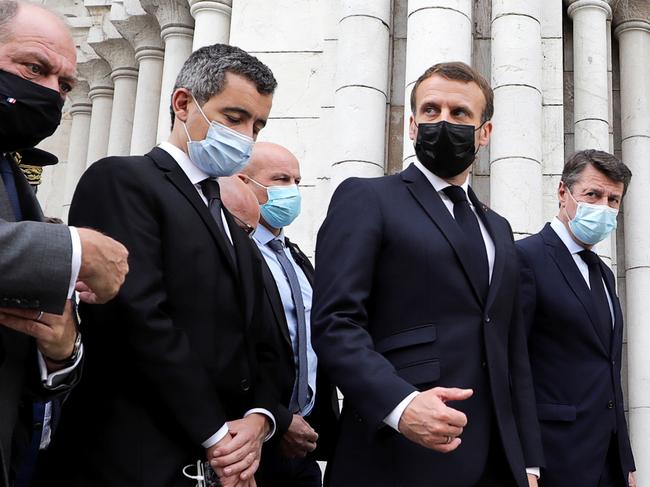
“We have built concentrations of poverty and problems … We have created areas where the promises of the republic have not been fulfilled.”
He pledged a draft law, extending legislation drawn up in 1905 that separates church and state in France.
The French government was worried that 50,000 children were being homeschooled, making them vulnerable to extremists.
It also planned to impose restrictions on who could run mosques.
In doing so, it went further than the headscarf ban in schools, which was introduced in 2004, but first became a flashpoint in 1989.
France is home to one of the largest Muslim populations in western Europe, with many coming from African countries, including Algeria, Tunisia and Morocco, which were former French colonies.
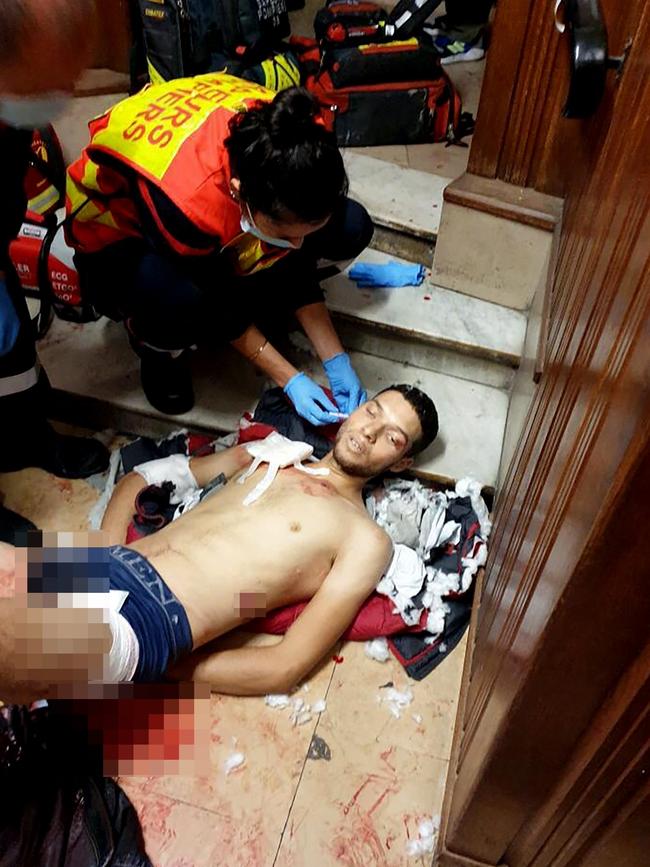
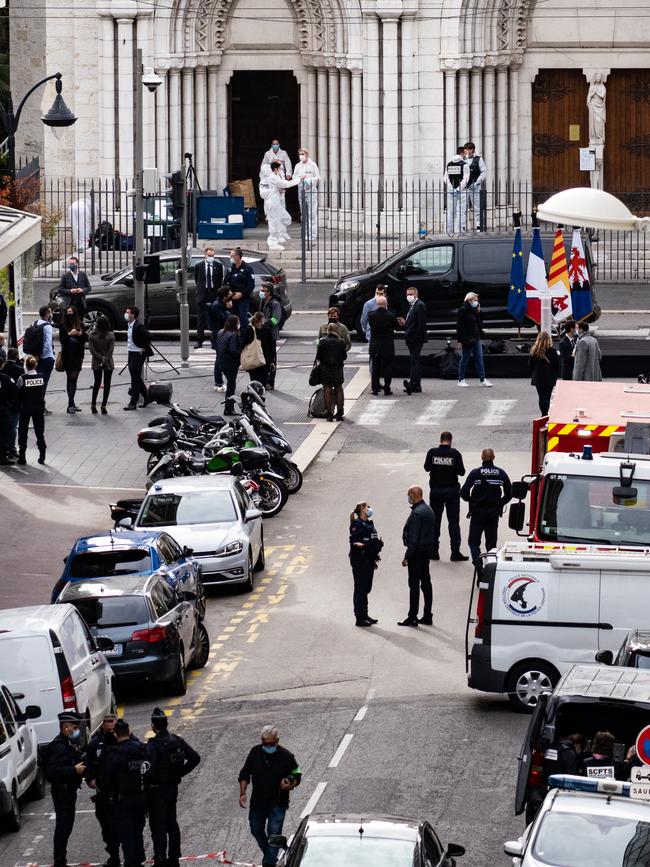
And they remain isolated in poor communities, which have made them easy targets for Muslim radicals.
In the past five years there have been at least 10 significant terror attacks.
In January 2015, more than 3.7 million people marched through the streets of Paris after bloody attacks on the offices of the Charlie Hebdo magazine and a Kosher supermarket that killed 17 people.
But later that year, there were even more deadly attacks.
Suicide bombers detonated themselves at the Stade de France on 13 November 2015 in a series of co-ordinated strikes.
A nightclub where a heavy metal band was playing was also hit, with gunmen locking themselves in and picking off victims in a macabre, deadly game.
More than 130 people were killed and 400 injured in those attacks.
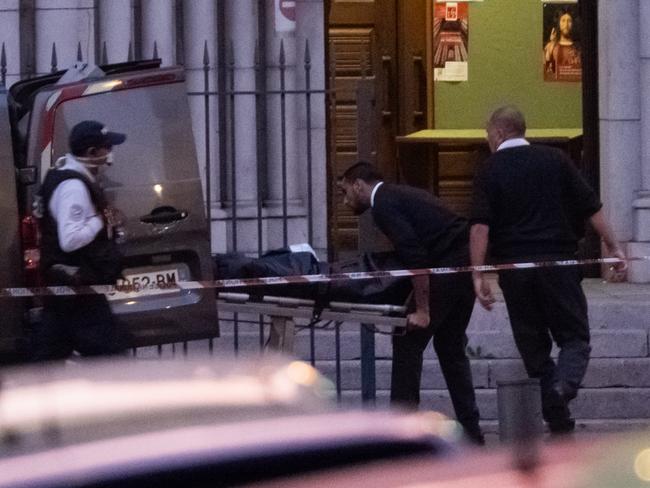
In July 2016, a truck drove through a crowd on the seafront in Nice, killing 84 people.
Five people were killed in a Christmas market attack in Strasbourg in December 2018.
A bomb went off near a bakery in Lyon in May 2019, injuring 13 people, while in October 2019, an employee killed four people at a Paris police station.
And there was a stabbing in Paris in September 2020, with two people injured.
Turkish president Recep Erdogan stoked anger in the Muslim world this month when he called Mr Macron mentally unwell because of his hard line comments about Islam in the wake of Mr Paty’s murder.
The French, who have refused to back down, recalled their ambassador in Turkey back to Paris.
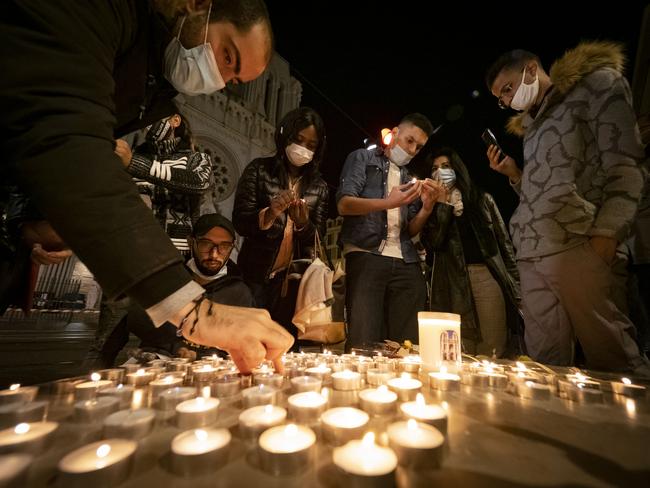
The dispute led to calls for Muslims to boycott French goods.
Jean-Charles Brisard, an analyst at the United States Centre for the Analysis of Terrorism, warned in 2015 of the Islamic extremist threat in France.
“For the last 30 years, the involvement of French jihadists in conflicts in Afghanistan, Chechnya, Somalia, and Iraq always had implications for French national security in terms of propaganda, recruitment, support, or terrorist acts,” he wrote.
“France currently has the largest contingent of foreign fighters from Europe in Syria and Iraq.
“It was clear that even if the group itself did not embrace a strategy of attacking the West, the thousands of foreign fighters it had recruited could take matters into their own hands.”
MORE NEWS
Why Trump’s about to face his real fight
Shock details of beheading terrorist emerge
Shane Warne banned from driving in the UK
More Coverage
Originally published as France terror attack: More arrests as Catholics pray in shadow of Nice attack




